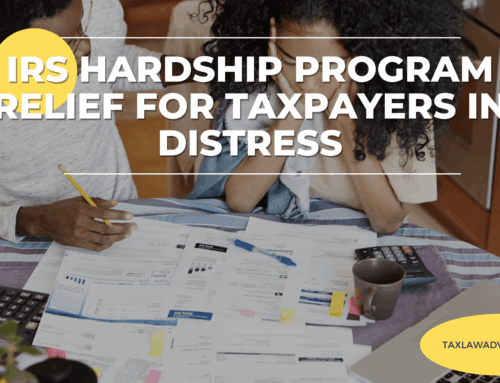
Do You Owe The IRS $10,000 Or More?
Tax Law Advocates has saved taxpayers millions of dollars in tax debt and IRS penalties. Our tax relief services include the IRS Fresh Start Program and IRS Debt Forgiveness. Call today to see if you qualify.
Here is a quick roundup of the latest in tax news for the month.
IRS moves forward with a new free-file tax return system, supporters and critics mobilize
An IRS plan to test drive a new electronic free-file tax return system next year has got supporters and critics of the idea mobilizing to sway the public and Congress over whether the government should set up a permanent program to help people file their taxes without needing to pay somebody else to figure out what they owe.
IRS Ramps Up Tax Enforcement for Millionaires
IRS tax enforcement led to the collection of $38 million from tax-evading millionaires. But the agency isn’t done making the wealthy pay up.
The IRS allocated some of its funding from the Inflation Reduction Act to tax enforcement, and tax-evading millionaires and billionaires are targets. The agency has already closed approximately 175 delinquent tax cases, resulting in a $38 million payday for the U.S. government. With billions of dollars of potential IRS funding on the line (some of which Republican lawmakers have clawed back), the agency is motivated to continue tax collection efforts against the wealthy, and the IRS is nowhere near done.
According to IRS Commissioner Danny Werfel, the recently collected $38 million in taxes from the wealthy is “just the start.”
IRS warns of summertime tax scams
The Internal Revenue Service is seeing a surge of tax scams this summer hitting taxpayers via email and text messages touting tax refunds and quick fixes to their tax problems.
Many of the email scams make promises about a third round of Economic Impact Payments.
The IRS said Friday it’s getting hundreds of complaints daily pouring into its phishing@irs.govinbox about this scam. The emails include an embedded URL link taking unwary taxpayers to a phishing website that steals their personal information.





